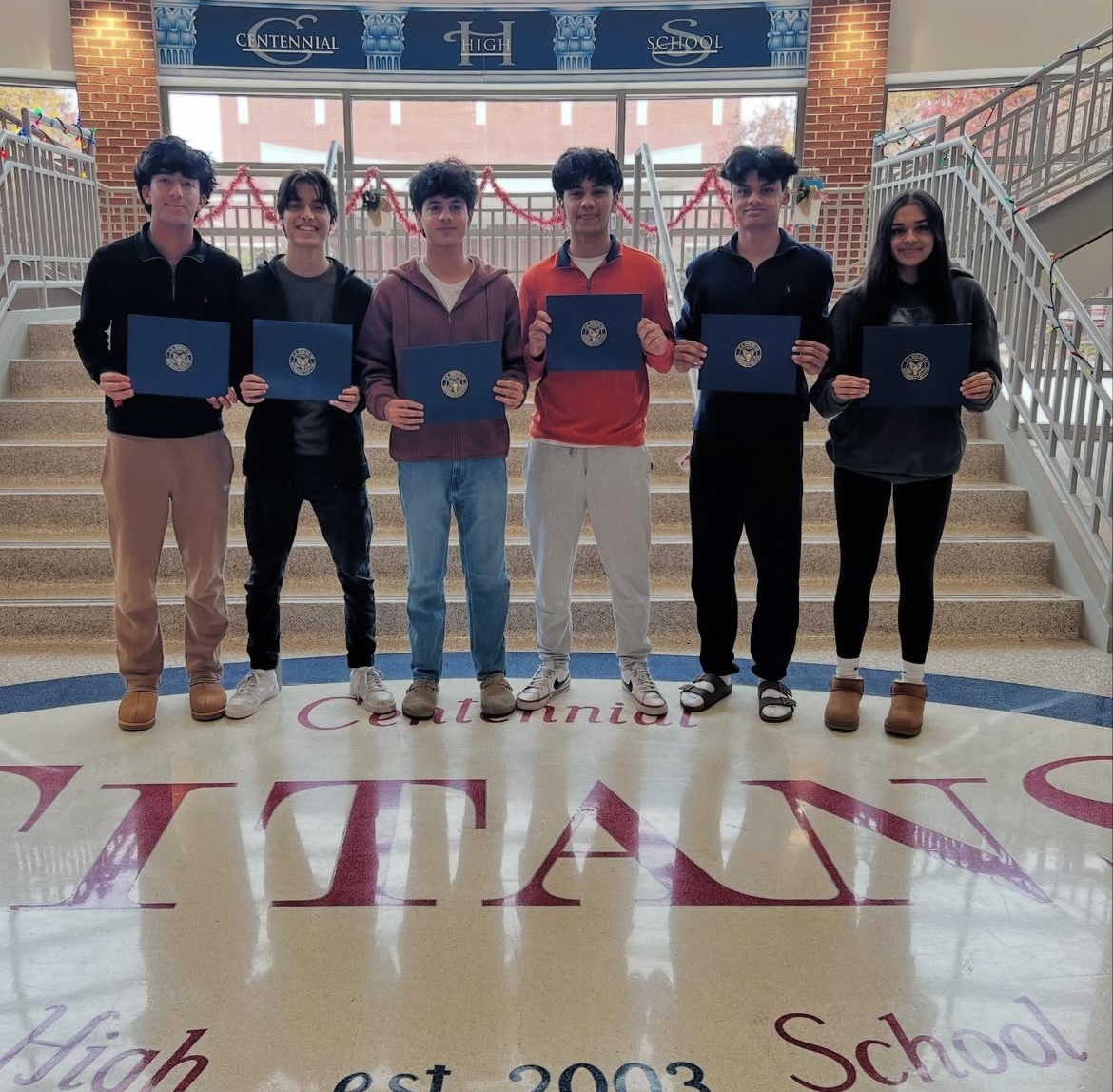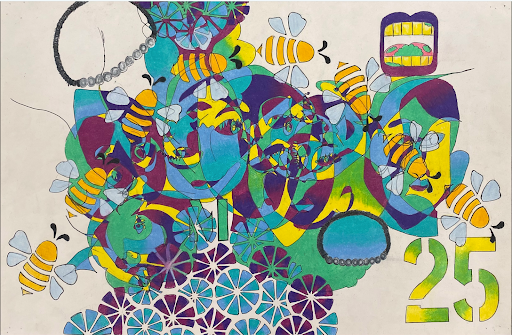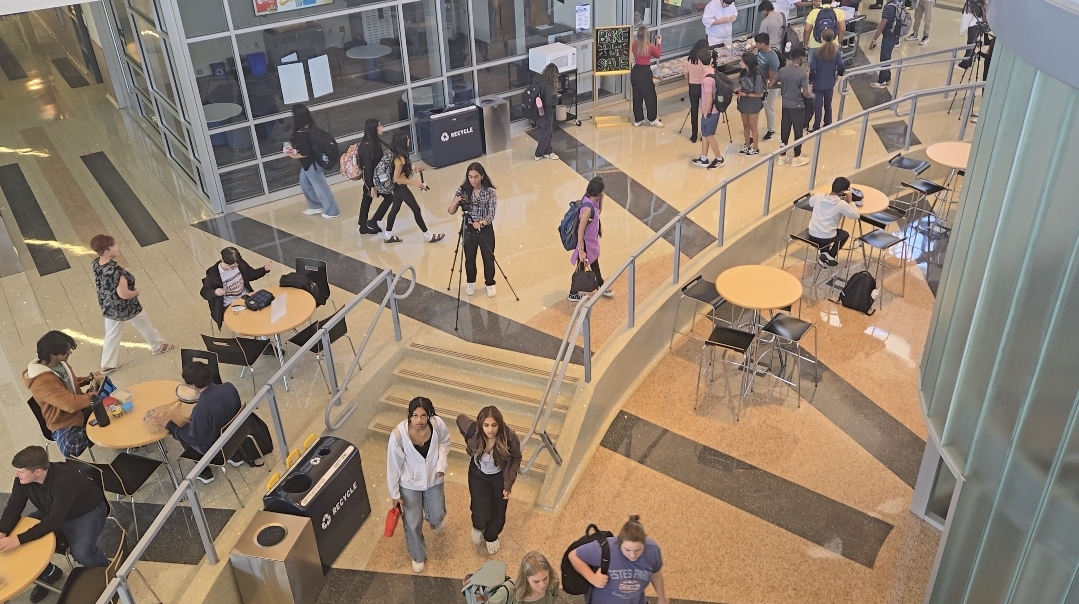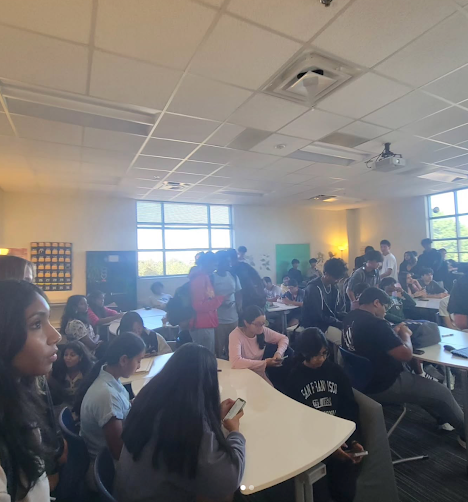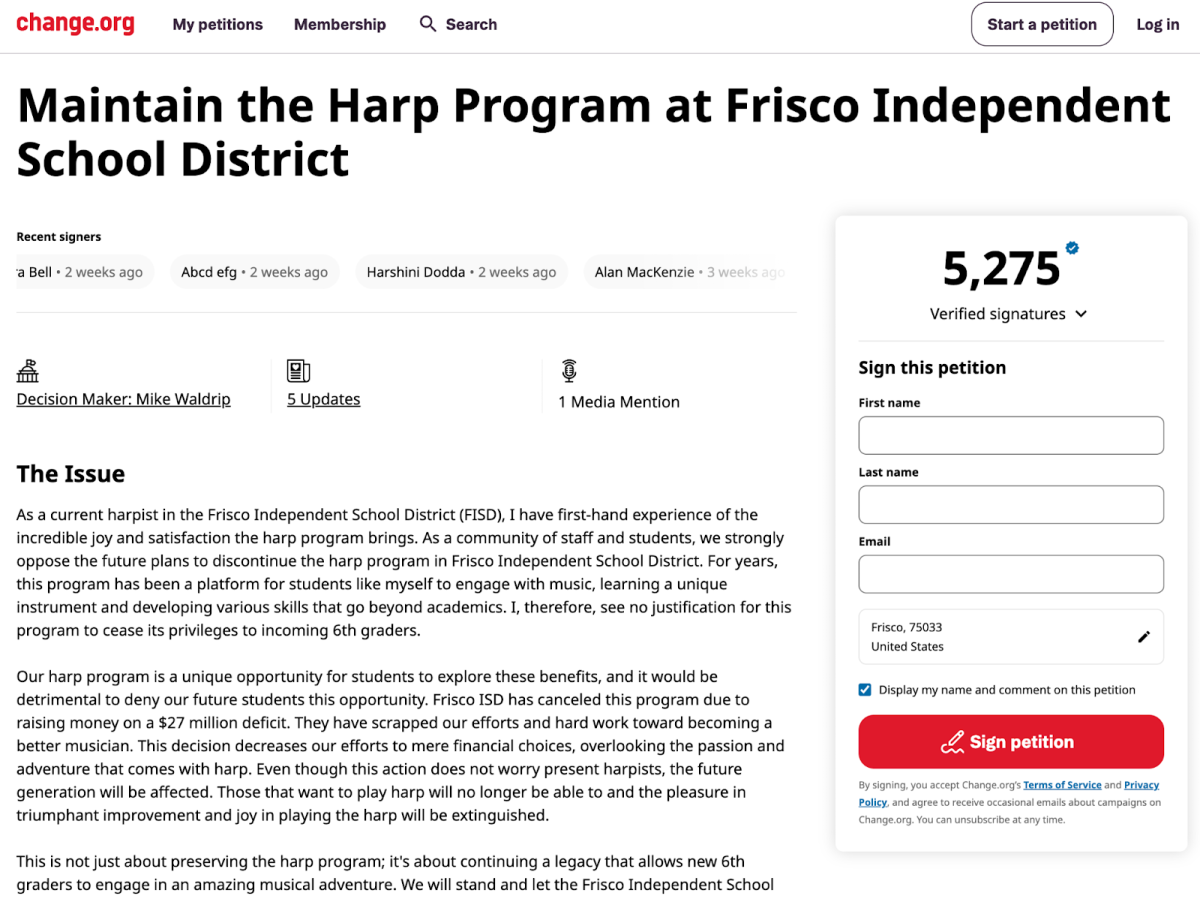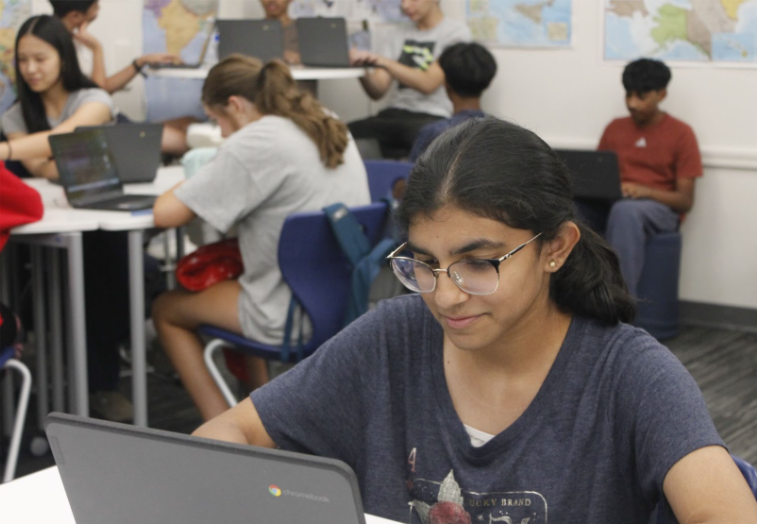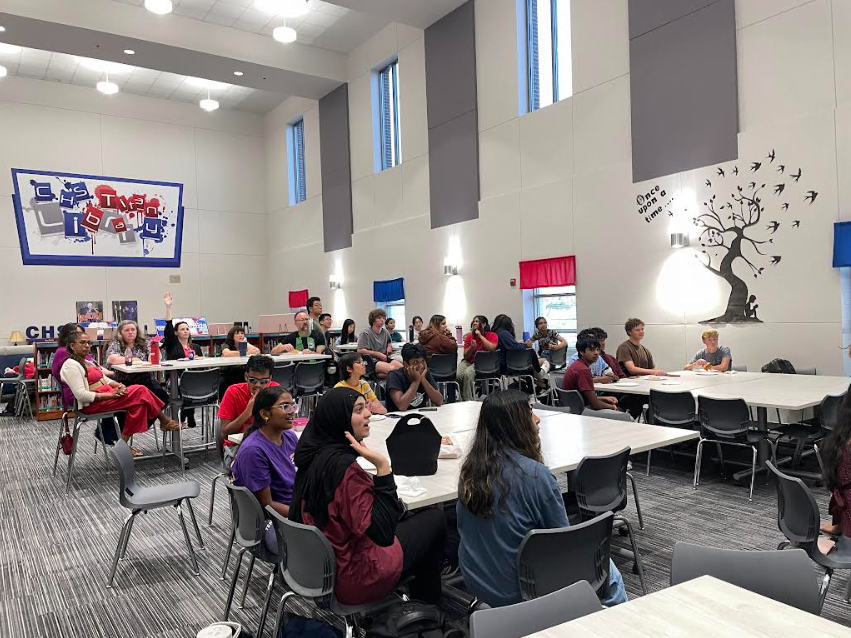FRISCO, TEXAS – Results for the 2024 Congressional App Challenge (CAC) recently dropped. Six Centennial students were recognized for placing first and fourth place in the 3rd District of Texas.
Aadi Sanghvi, Ahaan Girotra, Aarohan Sharma, Vaibhav Kolli won first place with their app Storm Shield. Karishma Jaiswal won fourth place with their app Hand-in-Hand.
The Congressional App Challenge is an annual coding competition hosted by Congress where students submit apps they developed for the chance to win and have their app displayed in Washington D.C.
Junior Aarohan Sharma shared more about the inspiration behind developing Storm Shield and its purpose.
“Storm Shield is an app that connects volunteers directly to opportunities to serve those affected by severe weather more easily than ever before, during, and after critical moments. Storm Shield was inspired by the chaos following Hurricane Milton in Florida, where volunteers wanted to help but had no easy way to find where they were needed,” Sharma said.
That’s when the team moved from ideation to development of Storm Shield.
“Our team first researched volunteer coordination challenges, then designed a user-friendly interface and built the app using tools like React Native and Supabase. [We] tested, refined, and iterated until the platform effectively matched volunteers with relevant opportunities,” Sharma stated.
The development of the app came to a close as quality assurance was completed and finishing touches were added, however Sharma and his team encountered challenges along the way.
“A major hurdle was finding a secure and flexible authentication solution, as many third-party options were expensive or poorly documented. After trial and error, the team settled on Supabase for its generous free tier and solid documentation.”
With an authentication solution secured and integrated successfully into Storm Shield, Sharma’s team began the process of submitting their app to CAC.
They started by finding the representative for their district and if they are participating in the CAC. From there, they filled out an application containing information like the title of the app, programming languages used, platforms developed for, along with the link to a short video demonstration.
After applications are submitted, judges choose winning apps after reviewing each application for creativity, impact, and usability. The winners are invited to Washington D.C. to participate in the annual House of Code event hosted by Congress, where winners demo their designs.
Sharma walked through the team’s experience of participating in CAC.
“It was both challenging and exciting pushing our team to work under deadlines and refine ideas. We gained technical skills, received valuable feedback, and [we] felt proud [about] sharing an app that could help communities in need.”
Sharma also shared some pointers for students interested in competing in CAC.
“Identify a meaningful problem that inspires you and start early to allow time for iteration. Seek feedback often, focus on user experience, and let impact guide your decisions rather than flashy features.”
Along with some helpful tips, Sharma had some final thoughts about creating Storm Shield.
“We learned that technology can drive real social change when guided by genuine needs, [and] we hope Storm Shield inspires others to use innovation to strengthen communities and improve lives.”
More information about the Congressional App Challenge and how to sign up can be found here.


